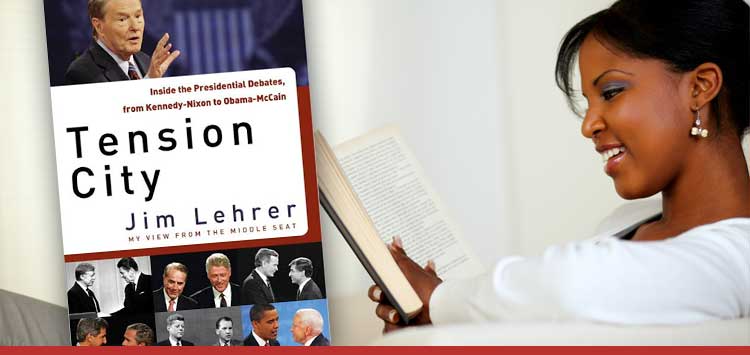Discuss With Us
Please use this discussion to introduce yourself. Who are you? Where are you from? What major are you interested in? Tell us your thoughts about the presidential election, and about the common reading. This is also the place to ask anything you want about this site, or these discussion, or this process.
In the twenty-first century, presidential debates are a standard component of campaigns for the White House. Candidates prepare extensively for these debates, and they are the most widely visible events for the media and the public before the general election. How useful are they, though, for candidates and voters? Do they prepare candidates for White House governance, and do they help voters reach an informed decision about which candidate to support?
According to conventional wisdom presidential debates are pivotal to the outcome of elections. That is, they change enough voters' minds to tilt the electorate towards one of the candidates. However, a close examination of the matter reveals that many debates merely serve to reinforce prevailing opinions of the public and do not affect public opinion. Which debates, if any, do you believe have been "game changers"? What particular aspects of debates (a candidate's physical appearance, tone, intellect, etc.) have the potential to change the preferences of a significant number of voters?
Debate moderators have a unique opportunity to shape the quality of deliberation in a democracy -- whether it will be civil or uncivil, informative or polemic, promoting engagement, or turning people off. Have you ever moderated a discussion or debate? Did you find yourself identifying with Jim Lehrer as you read the book? What kinds of skills does it take to be a good discussion moderator?
Jim Lehrer thinks the job of the journalist -- and the role of journalism generally -- is to help citizens understand the truth about matters of serious, common concern (p. 198). He criticizes what he sees as the politicization of the media in recent years. He calls it "a lot of loose-mouthed opinionating on television, blogs, and elsewhere by people who haven't done their homework, don't care about the facts, and disdain balance and fairness -- and good taste" (p. 194). Do you think that Lehrer is right? Does a journalist have an obligation to contribute to citizens' understanding the truth; and does this mean journalists must not take sides in ideological disputes? And do you think journalistic standards have declined in recent years (as Lehrer claims they have (p. 194))?


